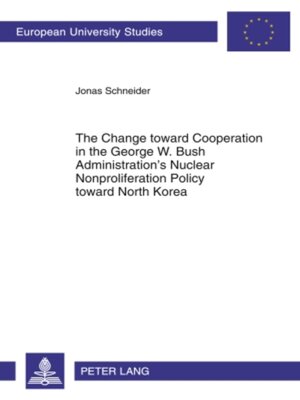The Change toward Cooperation in the George W. Bush Administration's Nuclear Nonproliferation Policy toward North Korea
ebook ∣ Europaeische Hochschulschriften / European University Studies / Publications Universitaires Européennes
By Jonas Schneider

Sign up to save your library
With an OverDrive account, you can save your favorite libraries for at-a-glance information about availability. Find out more about OverDrive accounts.
Find this title in Libby, the library reading app by OverDrive.



Search for a digital library with this title
Title found at these libraries:
| Library Name | Distance |
|---|---|
| Loading... |
This book offers a case study in foreign policy change: It examines why the Bush administration suddenly redirected its nuclear nonproliferation policy toward North Korea in the aftermath of North Korea's first nuclear test in October 2006, abandoning its former confrontational approach in favor of a more accommodating line. Existing explanations of this course reversal draw on the security implications of a growing crisis on the Korean Peninsula, U.S. domestic politics, and changing decision-making dynamics within the Bush administration. Employing before-after comparison, the study refutes these accounts – and it offers an alternative explanation: The Bush administration altered its nonproliferation policy toward North Korea toward a cooperative course because after the nuclear test, it perceived fundamentally improved prospects for fruitful cooperation on North Korea's denuclearization.







